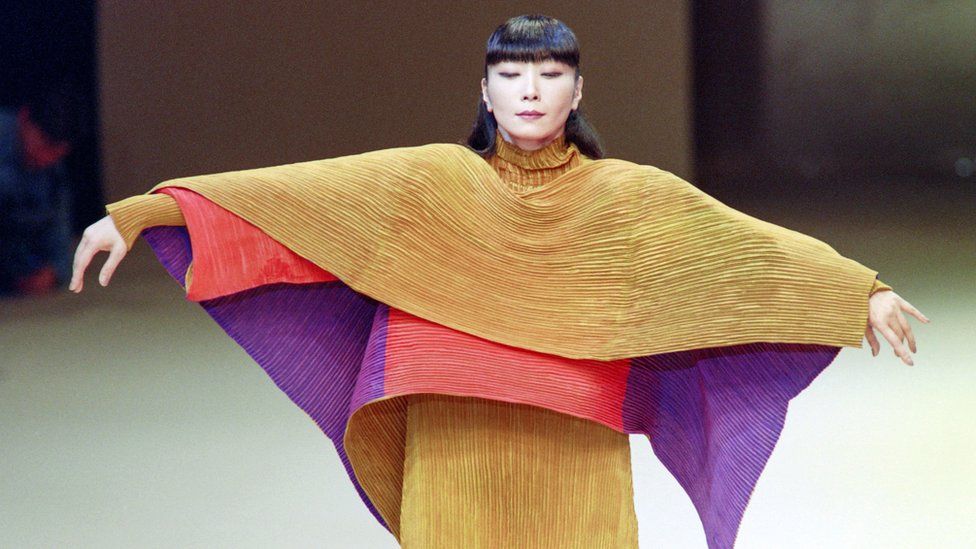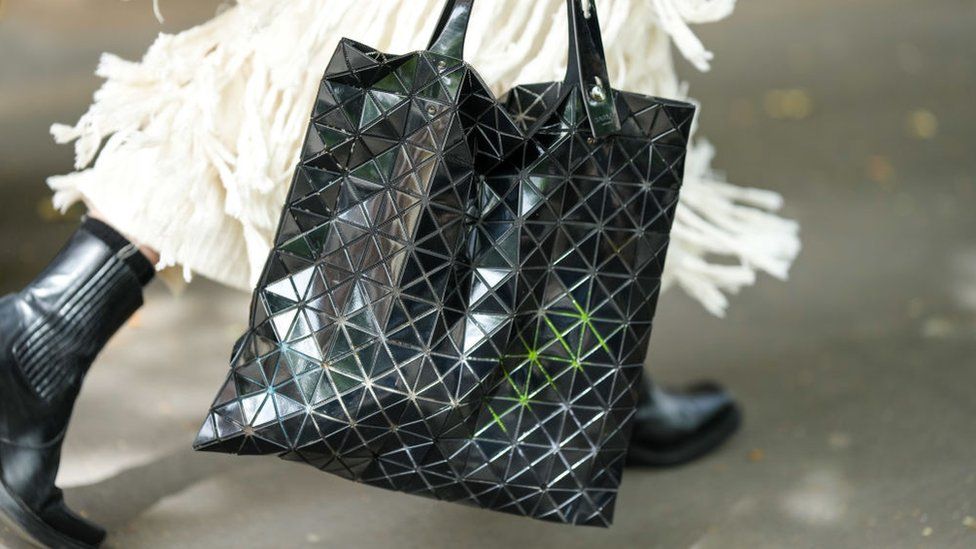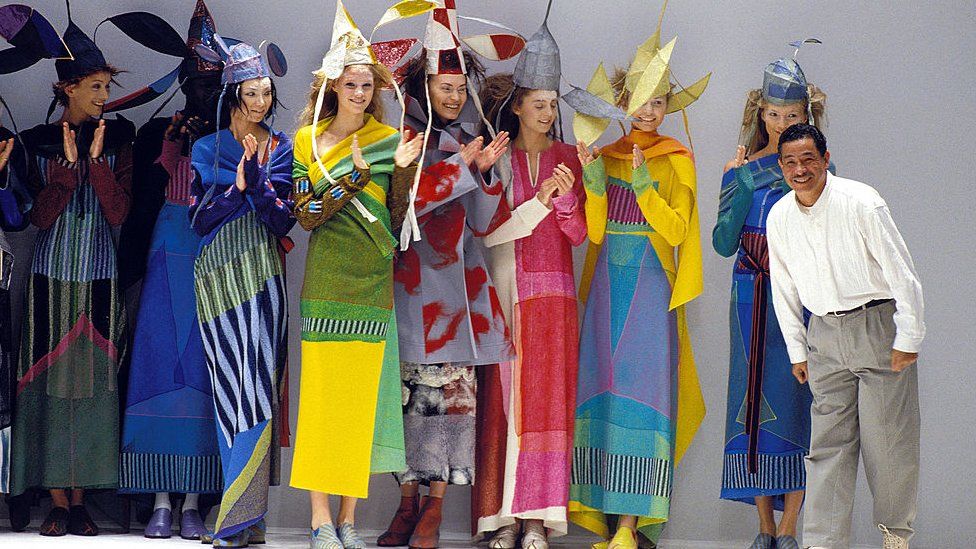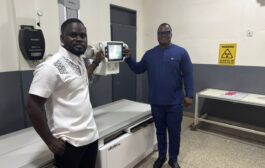Revolutionary Japanese fashion designer Issey Miyake has died aged 84, his company has announced.
Known for his innovative styles and perfume, Miyake built a global fashion brand, which included designing Steve Jobs’ famous black turtle neck jumpers.
Miyake was known to work with traditional and modern fashion techniques during his long career.
He died of liver cancer on Friday, and a private funeral has already taken place, Japanese media report.
Born in Hiroshima in 1938, Miyake was just seven years old when the city was devastated by an atomic bomb dropped by the United States. His mother died of radiation exposure three years later.
“When I close my eyes, I still see things no one should ever experience,” he wrote in a New York Times opinion piece in 2009 – adding that he prefers to think of things “that can be created, not destroyed, and that bring beauty and joy”.
Miyake reportedly wanted to be a dancer or athlete when he was young – but that changed after he read his sister’s fashion magazines.
He studied graphic design at a Tokyo art university and then moved to Paris in the 1960s, where he worked with lauded fashion designers Guy Laroche and Hubert de Givenchy.
He moved to New York for a short time, before heading back to Tokyo in 1970 to open the Miyake Design Studio.
By the 1980s he was celebrated as one of the world’s most pioneering designers as he worked with materials from plastic to metal – and also traditional Japanese material and paper.

Miyake developed a new way of pleating fabric by wrapping it between layers of paper in a heat press.
It was a phenomenal success – various tests proved the pleats stayed in place and didn’t wrinkle, and it lead to his signature line called Pleats, Please.
Miyake’s distinctive Bao Bao line of bags, recognisable for their small resin triangles, was celebrated for its engineering and was so popular that knock-offs flooded the fake designer market.
He became known for creating a style that was high-tech yet practical and comfortable, and was a household name in not only Japan’s fashion industry – but on the global catwalk.
His fashion house developed highly sought-after clothes for men and women, as well as bags, watches and perfumes – a bottle of L’Eau d’Issey, launched in 1992, was rumoured to sell every 14 seconds.
His A-POC (A Piece of Clothing) line, which can now be seen in museums, used a special weaving machine that made outfits out of one continuous tube of fabric.

Miyake was asked by Apple co-founder Steve Jobs to design his iconic turtle neck jumpers and reportedly made 100 of them, at $175 each.
He was awarded the prestigious Kyoto Prize for his dedication to the arts in 2006, and received the Order of Culture in 2010 for “remarkable accomplishments” in Japan’s culture and arts.
“Design needs to express hope,” Issey Miyake famously said, as he believed in the role of fashion in questioning how humans should exist – instead of making money.
For people here, he is one of a few Japanese names which get recognised around the world, along with Yoko Ono.
Not many will know about his traumatic childhood, as Miyake himself didn’t talk about it until his later years.
It was because, he wrote in 2009, he didn’t want to be known as “the designer who survived the atomic bomb”.
Miyake may have chosen not to talk about it for a long time, but Japan’s revolutionary designer left us one day before the 77th anniversary of his hometown’s bombing.
Source: BBC


















































